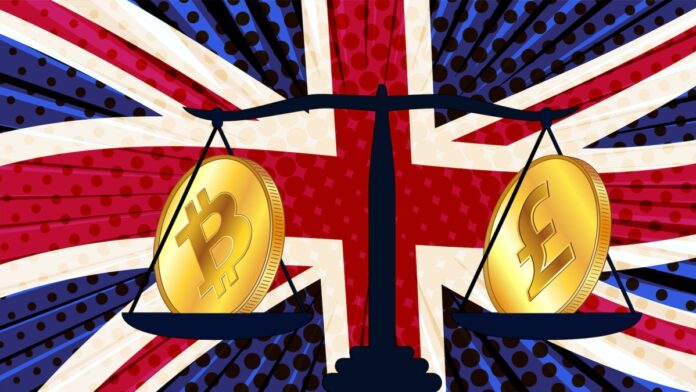The UK authorities has launched a brand new invoice to Parliament that proposes new authorized protections for digital belongings reminiscent of cryptocurrencies, non-fungible tokens (NFTs) and carbon credit.
The invoice comes because the crypto sector faces quite a lot of regulatory headwinds: Within the US, the Securities and Change Fee (SEC) dominated that sure cryptoassets are securities, and earlier this yr the SEC authorised the primary US-listed change. an exchange-traded fund (ETF) to trace bitcoin. In the meantime, the European Union (EU) can be introducing new legal guidelines to control cryptocurrencies and make it simpler to trace transactions.
The UK is engaged on comparable laws, however the brand new Property (Digital Property and so forth) Act is extra about legitimizing digital belongings as “private property” and bringing them to an analogous stage to conventional belongings.
The proposed legislation is a response to a 2023 Regulation Fee report which recognized the necessity to replace present authorized provisions relating to private property rights. The report famous:
As know-how advances and folks spend increasingly more time on-line, {our relationships} with digital belongings will develop into more and more necessary…our suggestions additionally goal to make sure that the personal legislation of England and Wales stays a dynamic, globally aggressive and versatile instrument for market individuals within the digital asset house.
Regulation Fee: Digital Property — Abstract of Ultimate Report
The idea of “private property” is necessary in legislation as a result of it performs a central position in authorized instances involving chapter, insolvency, theft, inheritance, divorce proceedings, and extra. At the moment, the legal guidelines in England and Wales (Scotland and Northern Eire have completely different authorized programs) govern two classes of property: Tangible items reminiscent of automobiles, jewelery and money, referred to as 'issues in possession'. Individually, “issues in motion” discuss with the safety of intangible belongings reminiscent of inventory, debt and mental property.
This leaves an enormous hole for “digital” belongings like Bitcoin and comparable cryptocurrencies, in addition to NFTs like digital artwork (which have modified palms for vital sums in recent times). This new, third class, if enacted into legislation, would deliver larger readability to what constitutes private property and make it simpler for courts to determine disputes.
For instance, a court docket might concern a freezing order to stop somebody from dispersing digital belongings earlier than a dispute is resolved, just like what a court docket already does with tangible merchandise. Or, if somebody has their digital asset stolen as a part of a rip-off, they could have larger authorized recourse.
As well as, such a legislation would imply that digital belongings might be a part of an individual's property for probate or chapter functions.
what's subsequent
The invoice was first revealed in July, however has now reached the primary studying stage within the Home of Lords, the place it should undergo varied debates and iterations earlier than going to the Home of Commons.
There may be nonetheless some strategy to go earlier than the invoice turns into legislation, however the UK presently has a majority Labor authorities, so it’s extremely seemingly that it’ll finally be handed – however in what type and with what provisions is unclear.
For instance, what will probably be thought of a “digital asset” underneath the brand new laws? In principle, the time period covers a variety, reminiscent of electronic mail accounts and recordsdata, carbon credit, and in-game digital belongings. The Regulation Fee acknowledges this, noting that there are prone to be “boundary points” throughout the spectrum of digital belongings. It additionally recommends a so-called “frequent legislation” method, which means that the legislation might have to be examined in court docket, with the presiding choose deciding on a case-by-case foundation, to determine precedents as as to whether property must be granted private property rights in a given case.
Nonetheless, the Ministry of Justice and the Regulation Fee are clear that the “predominant” digital asset protected by the legislation is crypto-tokens reminiscent of cryptocurrencies and NFTs.
